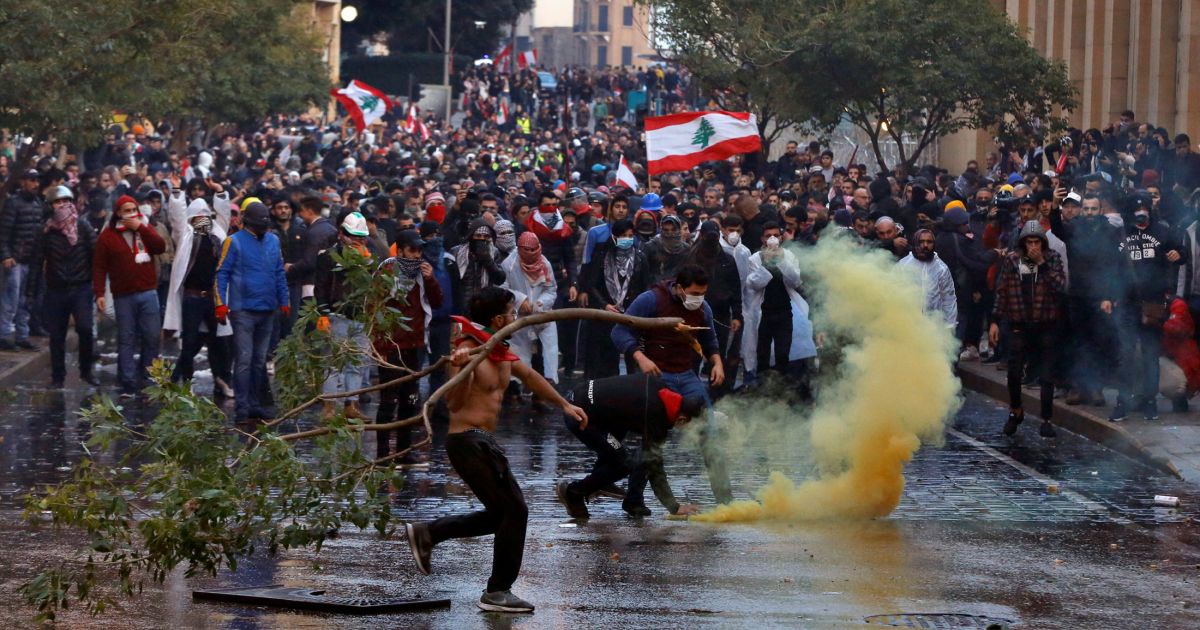CNN reporters on the ground near Martyrs’ Square saw demonstrators throw molotov cocktails, rocks and fireworks at police, and shine lasers at them to disrupt successive rounds of tear gas, in a violent nighttime exchange that has been going on for more than two hours.
More than 80 people were hospitalized and 140 have been treated at the scene, according to the Lebanese Red Cross.
Demonstrations over one of the country’s worst-ever economic crises began in mid-October and led to the resignation of Prime Minister Saad Hariri, who is now leading the country in a caretaker role.
Protests have been going on ever since, but had largely been peaceful. They erupted in violence this week as demonstrators began smashing bank windows and ATMs. Clashes with police have left dozens injured.
Protesters have grown increasingly frustrated as the country has been unable to form a legitimate government for more than three months.
The banking system has all but collapsed and Lebanese citizens have a monthly withdrawal limit worth around $200. The nation’s currency has lost 60% of its value in the months of tumult, as prices soar and people are left unable to pay their regular bills.
Lebanese Interior Minister Raya Haffar El Hassan was forced to apologize after security forces attacked journalists at protests on Wednesday, saying officers were under stress and were struggling to keep up with the months of demonstrations.
Reuters, Lebanon’s MTV and Al Jadeed TV said members of their crews were injured during clashes in central Beirut while they were covering protests outside the Helou barracks, that belong to the Internal Security Forces.
“The [security forces] members are tired. They are very tired. They are worried about themselves just as you are worried about yourselves. They are on alert. They’re not sleeping. They’re being insulted. They’re getting stones thrown at them. They’re getting [pieces of] metal thrown at them. So when they crack, oppression [of protesters] is the result. Is it excusable? No, it isn’t excusable. But you have to put yourselves in their shoes for a minute,” El Hassan told reporters.
Saad Hariri, who is currently leading the country in a caretaker role after resigning as prime minister in late October, issued a statement decrying the violence.
“The scene of confrontations, fires and acts of sabotage in Beirut Downtown is a crazy, suspicious, and unacceptable scene that threatens civil peace and warns of the most severe consequences,” he said. “Beirut will not be an arena for mercenaries and deliberate policies to strike the peacefulness of popular movements.”
CNN
